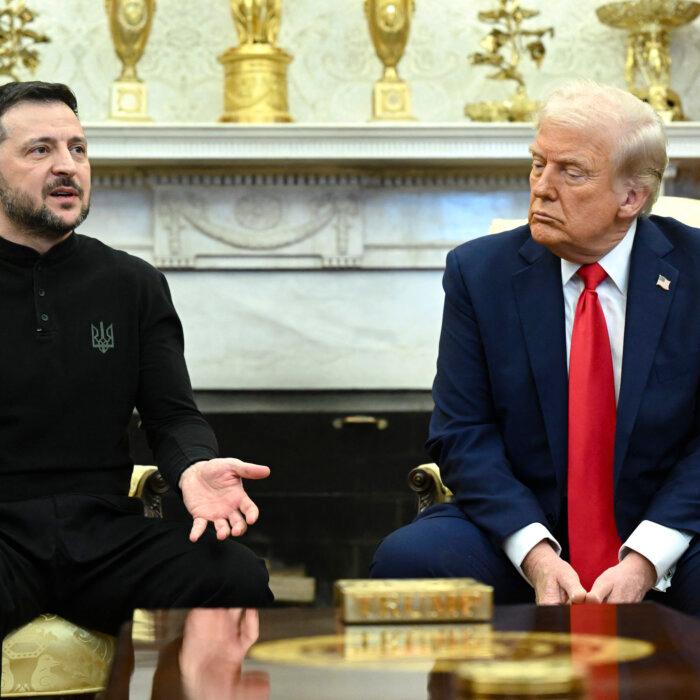Ukraine said on Friday that Russia had mounted a major missile and drone attack on energy infrastructure targets across the country during the night.
The attack came just hours after Ukraine’s President Volodymyr Zelenskyy announced he would begin talks with the United States government next week on ending the war.
Ukraine’s state-run oil and gas firm Naftogaz said in a statement on its Telegram channel: “Production facilities that ensure gas production were damaged. Fortunately, there were no casualties.”
The governor of Ternopil region, Viacheslav Nehoda, said the attack hit a critical industrial facility and would probably lead to gas supplies being rationed.
Oleh Syniehubov, the governor of Kharkiv region in northeast Ukraine, said at least five people had been injured in an attack on a civilian enterprise.
The Epoch Times could not independently verify reports by Ukrainian officials of Russian attacks.
Halushchenko said, “Wherever possible, rescuers and power crews are working to eliminate the consequences. All necessary measures are taken to stabilize energy and gas supply.”
‘Weaponizing Winter’
Ukrainian officials have accused Russia of “weaponizing winter” in an effort to undermine the morale of Ukrainian civilians. They say the attacks have disrupted electricity generation capacity and affected heating for Ukrainian homes as well as factories and other workplaces.The Kremlin shows no signs of halting its military operations amid diplomatic maneuvers and possibly negotiations, which might bring the conflict to an end.
On Thursday night, in a televised address to the nation, Zelenskyy said he would travel to Saudi Arabia on Monday to meet Crown Prince Mohammed bin Salman and would then stay on for talks with officials from the Trump administration.
On March 3, the Trump administration suspended military aid to Kyiv following a clash between Zelenskyy and President Donald Trump in the White House on Feb. 28.
Zelesnkyy has since said he would return to discussions on a minerals deal with the United States in exchange for continued aid.
Hungary Snubs Ukraine Statement
All but one member state—Hungary, whose leader Victor Orban is an ally of Trump—joined in a statement supporting Ukraine.Trump revealed the contents of what he described as an important letter from the Ukrainian leader during an address to Congress.
He quoted the letter to Congress, saying: “Ukraine is ready to come to the negotiating table as soon as possible to bring lasting peace closer. Nobody wants peace more than the Ukrainians.”
“My team and I stand ready to work under President Trump’s strong leadership to get a peace that lasts. We do really value how much America has done to help Ukraine maintain its sovereignty and independence,” the letter concluded.
Russia’s President Vladimir Putin invaded Ukraine in Feb. 2022 in what he described as a “special military operation.”
Over the past three years Russian forces have occupied about a fifth of Ukraine’s territory, including Crimea—which they annexed in 2014—and portions of the Donbas region, which had, under ethnic Russian separatists, broken away from Kyiv’s control at the same time.







